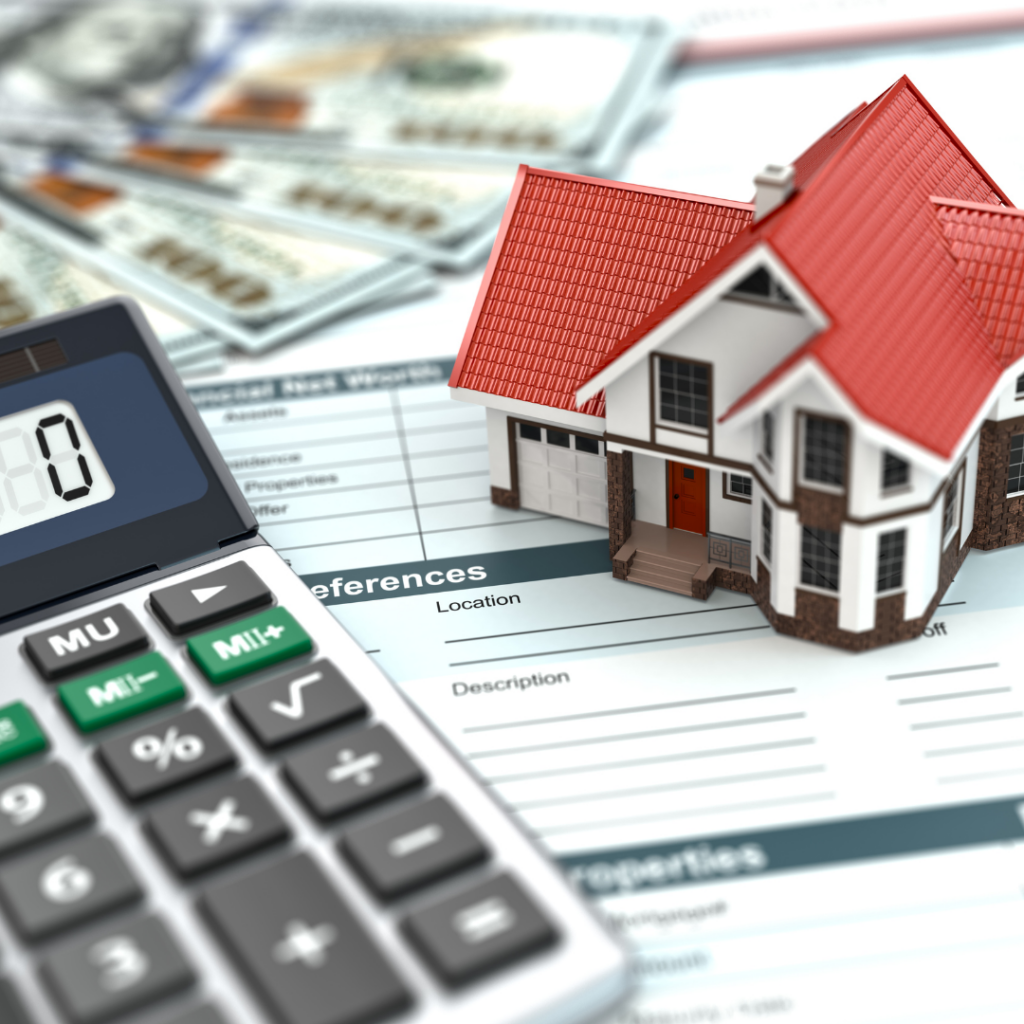The 411 on Reverse Mortgage

Queen, your home is your castle. There’s no doubt that your home is built on blood, sweat, and tears as well as dreams and memories.
Owning your own home is an iconic accomplishment, a manifestation of the American dream. For many of us, home ownership defies centuries of institutionalized racism including redlining, and serves as a powerful means of creating and transmitting generational wealth. According to the Federal Reserve, at the end of 2019, 20 percent of Black families’ wealth came from home equity, compared to about 16 percent for white families. This percentage is so high in part because the housing market has been strong over the last decade, and in part because Black families—which usually have less wealth overall than white families—have a higher percentage of their wealth tied up in home equity.
And times, as in the times of life, change. Perhaps you’ve taken out a second, or perhaps most of your net worth is tied up in your home for other reasons. At midlife and beyond, you may be retired. You may be suddenly single if you’ve outlived your mate, and your cash flow may be anemic without regular income. And if you’re feeling the squeeze, maybe you have even considered taking a reverse mortgage.
WHAT IT IS
If you’re a property owner who’s at least 62, you can borrow against your equity to get cash or a line of credit from a lender. Here’s the honeypot: unlike a regular mortgage, you won’t have to make monthly payments on the loan. You’ll repay the loan when you (or your heirs) sell the property. This may make you think and feel like your reverse mortgage is “free money,” although we all know that there is no such thing.
The most common type of reverse mortgage is known as a home equity conversion mortgage (HECM). These loans are backed by the Federal Housing Administration (FHA); borrowers pay an insurance premium in order to participate, which is used to fund FHA reserves. If a borrower fails to repay their loan, those reserves are drawn against it to pay back the lender.
In addition to being at least 62 years old, there are a few other requirements to get an HECM:
- You need to own the home outright or have paid down a considerable amount of the mortgage.
- The property has to be your principal residence and you can’t be delinquent on any federal debt.
- You will be subject to a credit check and other eligibility requirements. (Yes, you need good credit, 700s minimum, 800s ideally, to qualify!)
- You must stay current on the property taxes, insurance, and any homeowners association (HOA) fees.
WHY IT’S DIFFERENT
You’ve lived for a half-century or more, and you probably know all about paying monthly bills! A typical mortgage loan means that your bank lends you a lump sum which you pay back over time with interest. A reverse mortgage, true to its name, is just the reverse. The lender makes payments to YOU. You can choose to receive a lump sum, monthly payments, a line of credit, or a mix-and-match combo of these options. You get to keep the title to your home the whole time, and the balance isn’t due until you move out or die.
Sounds good, right? Bust out the bubbly!

BUT HERE’S THE CATCH:
The interest and fees associated with the loan get rolled into the balance each month. That means the amount you owe grows over time, while your home equity decreases.
It’s easy to see how this combo can snowball and mean trouble for you as an elder homeowner. Your debit will deepen as the value of your #1 asset– your home– declines.
Consider this MAJOR caveat: In order to qualify for a reverse mortgage, you have to be able to afford your property taxes, homeowners insurance, HOA fees, and other costs associated with owning your home. You’re also required to live inside the home as your principal residence for most of the year. If at any point during the loan period, you become delinquent on these expenses or spend the majority of the year living outside the property, you could default on the reverse mortgage and lose your home to foreclosure. A reverse mortgage eats away at your home’s equity. By the time it needs to be paid off, there may not even be any equity to be left to your heirs.Another potential risk: you may be doing your children and grandchildren a disservice because they will inherit LESS. Homeownership is a key path to building generational wealth. However, a reverse mortgage usually requires the home to be sold to repay the debt. When you die, heirs will be required to pay the full loan balance or 95 percent of the home’s appraised value, whichever is less. Usually, that means selling the home or turning the property over to the lender to satisfy the debt.
MAKE SURE THAT YOU UNDERSTAND
It truly is complicated!
Here’s a quick breakdown of reverse mortgage pros and cons:
ON THE GOOD FOOT, a reverse mortgage…
- Helps secure your retirement, making it attractive to retirees who lack substantial cash savings but have wealth built up in the Home Sweet Home. A reverse mortgage turns your home into a liquid asset— cash!– that you can use to pay bills.
- You can stay in your home. Instead of having to sell your home in order to liquify your asset, you can keep the property and still get cash out of it. This means you don’t have to worry about potentially downsizing or getting priced out of your neighborhood if you have to move.
- Your home doesn’t have to be paid off in order to take out a reverse mortgage. In fact, you can use the proceeds of a reverse mortgage to pay off an existing home loan. This frees up money to put toward other expenses.
- You don’t pay Uncle Sam! According to the IRS, money you get from a reverse mortgage is considered to be a loan advance rather than income. That means the funds aren’t taxed, unlike other retirement income such as distributions from a 401(k) or IRA.
- You’re protected if the balance exceeds your home’s market value. The value of your home could end up being less than the total amount owed on the reverse mortgage. This can happen if home prices fall, for example. If this occurs, your heirs don’t have to worry about paying the balance.
AND YET…
You already know about the potential foreclosure risk, and the fact that your heirs might lose out on their inheritance. Here are a few more downsides to a reverse mortgage to carefully consider:
It’s not free money. Sorry. You might not have to make payments with a reverse mortgage, but there are still plenty of expenses associated with one. Not only do you have to keep up on your taxes, insurance and HOA fees, but you also have to pay an upfront insurance premium. Usually, this is 2 percent of your home’s appraised value. You’ll also pay origination fees at closing. You do have the option of rolling these costs into your loan balance, but that means you receive less money.
Your SSI, Medicaid and other government-funded benefits will be compromised, even though your reverse mortgage isn’t counted as taxable income. Be sure to explore this point in depth with your benefits specialist to avoid any nasty surprises.
TIP TO THE TRIBE
Work with Black professionals or others who share your values during your home search and while securing your mortgage. For example, you can look for a real estate agent who is a Realtist, which designates an affiliation with the National Association of Real Estate Brokers. NAREB, which has a primarily Black membership, is focused on promoting fair housing and equal rights.
- Black-led and Black-owned mortgage lenders:
https://black-owned-mortgage-lenders
- Black-owned banks and credit unions:
https://www.nerdwallet.com/credit-unions#list
#
Hello all.
Under THE CATAGORY OF “… no such thing as a coincidence”, I began my daily reviewing of postings, and notifications, etc. My mind’s eye got stuck on information about a “15-year mortgage”. I have a 30-year mortgage. The next prompt came courtesy of my 50 fifty & more, subscription – subject – The Reverse mortgage dilemma. It was in reading and re-reading “the 411 on Reverse mortgage” that I gained clarity and thus a better understanding of what options there are. although currently married, I acquired and maintained via prenup, all of my real-estate holdings as a single woman and have no heirs. Thank you 50 fifty for this valuable message. I know it will help others.